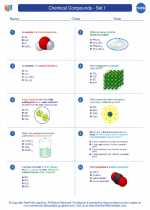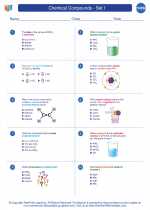Cellular Differentiation
Cellular differentiation is the process by which a less specialized cell becomes more specialized and takes on a specific function. This process is essential for the development and function of multicellular organisms.
Key Concepts
- Gene expression: Cellular differentiation involves the selective expression of certain genes while suppressing the expression of others. This results in the development of specific cellular structures and functions.
- Stem cells: These are undifferentiated cells that have the potential to differentiate into various cell types. They play a crucial role in the process of cellular differentiation.
- Signaling pathways: Differentiation is often guided by extracellular signals, such as growth factors and hormones, which activate specific signaling pathways within the cell.
- Epigenetic modifications: Changes in the epigenetic landscape of a cell, including DNA methylation and histone modifications, can influence gene expression patterns and drive differentiation.
- Tissue-specific functions: Through differentiation, cells acquire specialized functions that contribute to the overall structure and function of different tissues and organs in the body.
Mechanisms of Cellular Differentiation
There are several mechanisms that govern cellular differentiation:
- Transcriptional regulation: Involves the activation or repression of specific genes through the action of transcription factors and other regulatory proteins.
- Cell signaling: Extracellular signals can trigger intracellular signaling cascades that lead to changes in gene expression and cellular behavior.
- Epigenetic modifications: Alterations in the epigenetic landscape can result in heritable changes in gene expression patterns, influencing cell fate.
- Morphogen gradients: Concentration gradients of signaling molecules can specify different cell fates based on the positional information within a developing embryo or tissue.
Importance of Cellular Differentiation
Cellular differentiation is critical for the following reasons:
- It enables the development of specialized cell types that are essential for the structure and function of tissues and organs.
- It plays a key role in processes such as embryonic development, tissue repair, and maintenance of homeostasis in the adult organism.
- It contributes to the diversity and complexity of multicellular organisms, allowing for the specialization of cells to perform specific tasks.
Study Guide
When studying cellular differentiation, consider the following aspects:
- Understand the concept of gene expression and how it is regulated during differentiation.
- Explore the role of stem cells and their potential to differentiate into various cell types.
- Examine the signaling pathways involved in cellular differentiation and their impact on gene expression.
- Investigate the role of epigenetic modifications in influencing cell fate and differentiation.
- Consider the importance of cellular differentiation in the context of tissue-specific functions and the overall organization of multicellular organisms.
By mastering these concepts, you will gain a comprehensive understanding of cellular differentiation and its significance in biological systems.
[Cellular Differentiation] Related Worksheets and Study Guides:
.◂Chemistry Worksheets and Study Guides High School. Chemical Compounds - Set I
Worksheet/Answer key Chemical Compounds - Set I
Chemical Compounds - Set I  Worksheet/Answer key
Worksheet/Answer key Chemical Compounds - Set I
Chemical Compounds - Set I  Worksheet/Answer key
Worksheet/Answer key Chemical Compounds - Set I
Chemical Compounds - Set I 

 Worksheet/Answer key
Worksheet/Answer key
 Worksheet/Answer key
Worksheet/Answer key

The resources above cover the following skills:
CHEMISTRY
Matter and Its Interactions
Use the periodic table as a systematic representation to predict properties of elements based on their valence electron arrangement.
Use the periodic table as a model to derive formulas and names of ionic and covalent compounds.